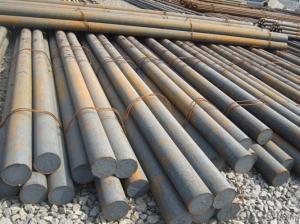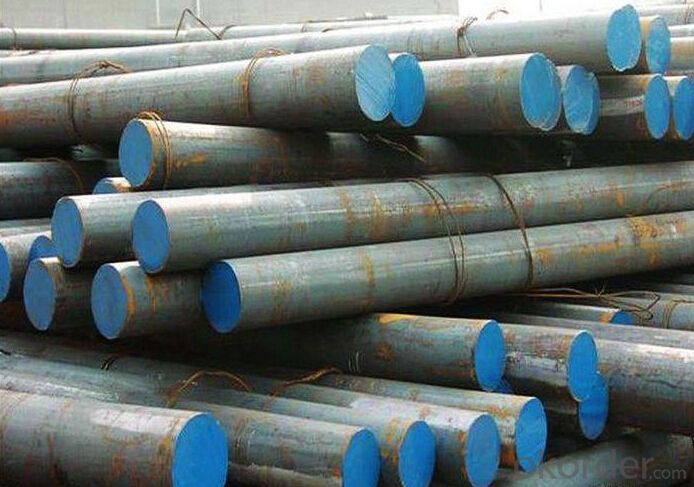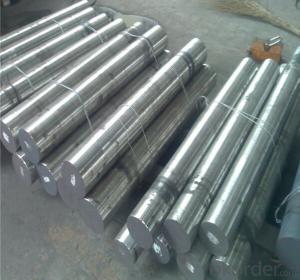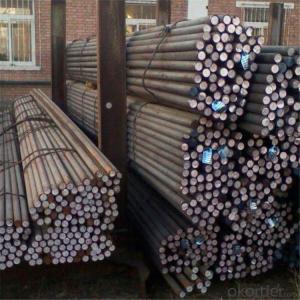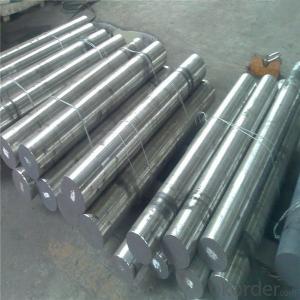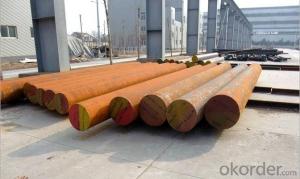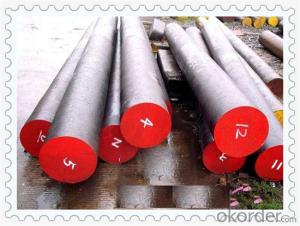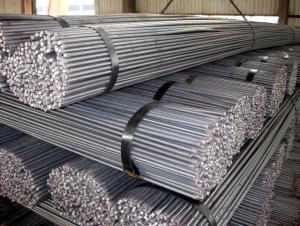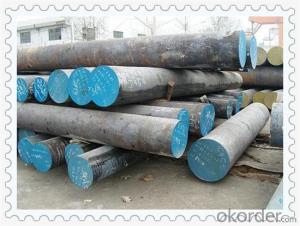C35 C45 Material Cold Drawn Free Cutting Steel Bar
- Loading Port:
- Qingdao
- Payment Terms:
- TT OR LC
- Min Order Qty:
- 5 m.t.
- Supply Capability:
- 100000 m.t./month
OKorder Service Pledge
Quality Product, Order Online Tracking, Timely Delivery
OKorder Financial Service
Credit Rating, Credit Services, Credit Purchasing
You Might Also Like
Specification
Type:
Carbon Steel,Spring Steel,Bearing Steel,Gear Steel,Deformed Steel,Stainless Steel,Alloy Steel
Shape:
Steel Coil,Steel Sheet,Steel Wire Rod,Steel Flat Bar,Steel Square Bar,Steel Angle,Steel Round Bar,Steel Billets
Technique:
Hot Rolled,Cold Rolled,Cold Drawn,ERW,Forged,Saw,Extruded,EFW,Spring
Surface Treatment:
Galvanized,Coated,Copper Coated,Color Coated,Oiled,Dry,Chromed Passivation,Polished,Bright,Black,PVDF Coated
Certification:
ISO,SGS,BV,IBR,RoHS,CE,API,BSI,UL
Thickness:
50-800mm
Width:
50-800mm
Length:
6-12m
Outer Diameter:
50-800mm
Net Weight:
100kg
Packaging:
seaworthy packaging
C35 C45 Material Cold Drawn Free Cutting Steel Bar
Detailed Information of C35 C45 Material Cold Drawn Free Cutting Steel Bar
| Name | Steel Round Bar |
| Shape | Round Bar/Square Bar/Flat Bar/Plate/Wire |
| Standard | GB/ASTM/SAE/AISI/DIN/JIS/EN/BS |
| Surface Treatment: | Black/Peeling/Polished/Machined |
| Delivery Condition: | Hot Rolled or Forged/Peeled or Black Surface |
| Test | SGS/UT 100% Elements Testing |
| Certificate: | ISO/Mill Certificate |
| Service: | 24 hours online service / |
| more than 20 years trading and manufacture | |
| Quality Assurance: | the third party inspection, such as SGS, BV, TUV…etc. is acceptable |
| Packaging Details: | Seaworthy Packaging or as per customer's packing instruction |
Product Overviews of C35 C45 Material Cold Drawn Free Cutting Steel Bar
| Product Name | Typical Grades | Diameter(mm) | Standard Adopted |
| Carbon Steel | 20 (1020/S20C/C22) | ||
| 40 (1040/S40C/C40) | Ø16-Ø300 | ||
| 45 (1045/S45C/C45) | |||
| Bearing Steel | GCr9 (51100/SUJ1) | ||
| GCr15 (52100/SUJ2/100Gr6) | Ø12-Ø250 | ||
| GCr9SiMn (A485-Gr.1/SUJ3) | GB/SAE/ | ||
| Cr-Mo Steel | 20Cr (5120/SCr420H/20Cr4) | JIS/DIN | |
| 40Cr (5140/SCr440/41Cr4) | Ø12-Ø250 | ||
| 42CrMo(4140/SCM440/42CrMo4) | |||
| Gear Steel | 20CrNiMo | ||
| 20CrMn(5115/SMnC420/20MnCr5) | Ø16-Ø600 | ||
| 20CrNiMo(8620/SNCM220/20CrMiMo2) |
Company Introduction of C35 C45 Material Cold Drawn Free Cutting Steel Bar
CNBM International Corporation is the most import and export platform of CNBM group(China National Building Material Group Corporation) ,which is a state-owned enterprise, ranked in 270th of Fortune Global 500 in 2015.
With its advantages, CNBM International are mainly concentrate on Cement, Glass, Iron and Steel, Ceramics industries and devotes herself for supplying high quality series of refractories as well as technical consultancies and logistics solution.
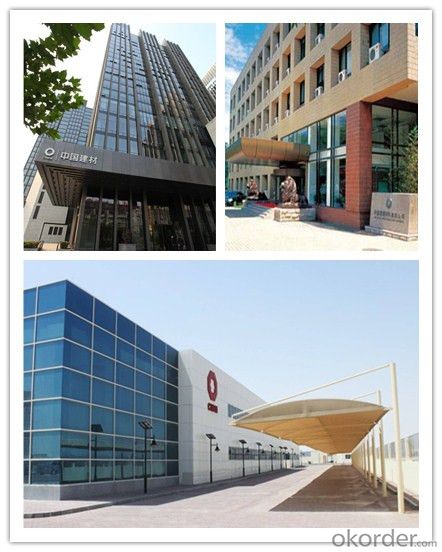
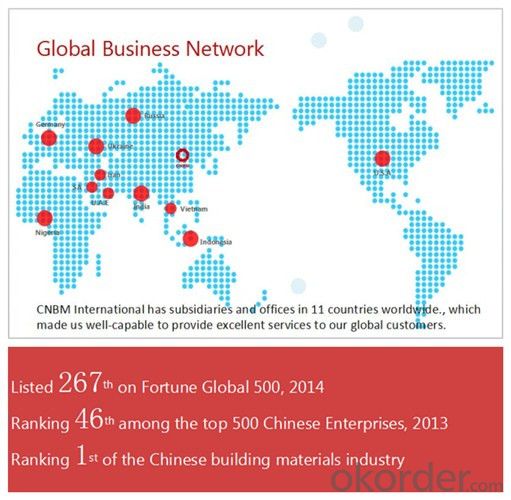
| After-sale service | l CNBM provides the services and support you need for every step of our cooperation. We’re the business partners you can trust; you can relax and get on with doing business. |
| l For any problem, please kindly contact us at any your convenient time, we’ll reply you in our first priority within 24 hours | |
| Advantages | l Industry experience over 20 years. |
| l Shipment of goods -More than 70 countries worldwide. | |
| l The most convenient transport and prompt delivery. | |
| l Competitive price with best service. | |
| l High technical production line with top quality products. | |
| l High reputation based on best quality products. | |
Packaging & Delivery of C35 C45 Material Cold Drawn Free Cutting Steel Bar
| Packaging Detail | Sea worthy packing /as per customer's packing instruction |
| Delivery Detail | 15 ~ 40 days after receiving the deposit |
Products Show
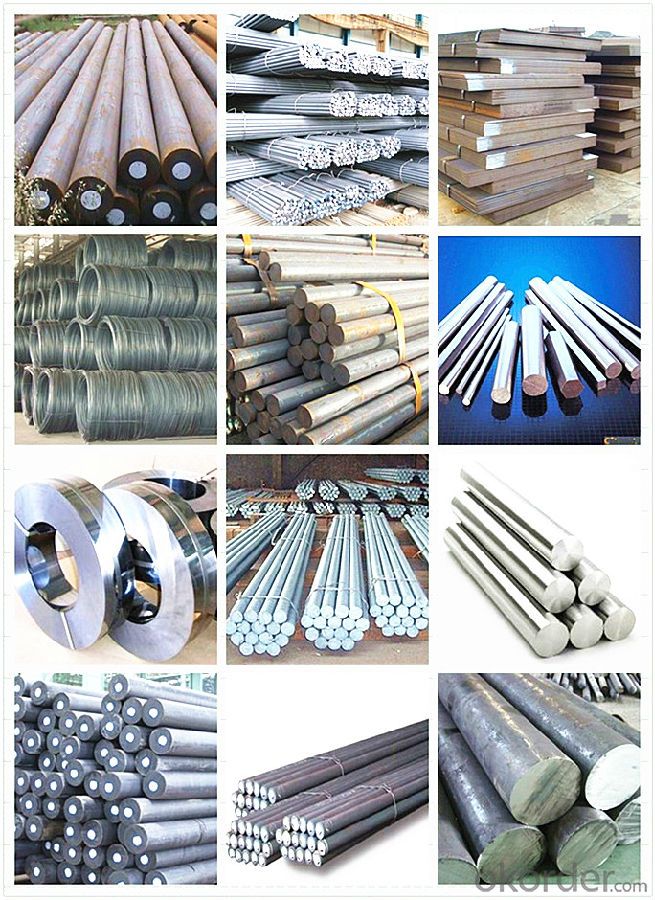
FAQ:
| Are you a trading company or manufacturer? | Manufacturer |
| What’s the MOQ? | 1000m2 |
| What’s your delivery time? | 15-20 days after downpayment received |
| Do you Accept OEM service? | Yes |
| what’s your delivery terms? | FOB/CFR/CIF |
| What's the Payment Terms? | 30% as deposit,70% before shipment by T/T |
| Western Union acceptable for small amount. | |
| L/C acceptable for large amount. | |
| Scrow ,Paybal,Alipay are also ok | |
| Why choose us? | Chose happens because of quality, then price, We can give you both. Additionally, we can also offer professional products inquiry, products knowledge train (for agents), smooth goods delivery, excellent customer solution proposals. |
| What's your available port of Shipment? | Main Port, China |
| What’s your featured services? | Our service formula: good quality+ good price+ good service=customer's trust |
| Where are your Market? | Covering more than 160 countries in the world |
- Q: What are the different surface coating methods used for special steel?
- There are several surface coating methods used for special steel, including electroplating, hot-dip galvanizing, powder coating, and PVD (Physical Vapor Deposition) coating. Each method provides unique properties such as corrosion resistance, improved aesthetics, and enhanced durability, depending on the specific requirements of the steel application.
- Q: What are the properties of corrosion-resistant steel?
- Corrosion-resistant steel, also known as stainless steel, possesses several key properties. Firstly, it exhibits a high resistance to corrosion, making it resistant to rust and other forms of degradation caused by moisture and exposure to various chemicals. This type of steel also has a high strength-to-weight ratio, enabling it to maintain its structural integrity even under extreme conditions. Additionally, corrosion-resistant steel is highly durable and has a long lifespan, making it a reliable choice for applications requiring longevity. It is also aesthetically appealing, with a smooth and polished surface finish. Overall, the properties of corrosion-resistant steel make it a versatile and reliable material for a wide range of industrial, architectural, and consumer applications.
- Q: How does special steel perform in extreme cold temperatures?
- Special steel is specifically designed to perform well in extreme cold temperatures. It is made using alloys that have a low temperature ductility, meaning they can withstand and maintain their structural integrity even in extremely cold conditions. This type of steel is often used in applications such as Arctic exploration, oil and gas operations in cold environments, and in the aerospace industry. One of the key properties of special steel is its ability to resist brittleness at low temperatures. Unlike regular steel, which becomes brittle and prone to cracking in extreme cold, special steel retains its toughness, making it suitable for use in sub-zero conditions. This is achieved by carefully selecting and controlling the composition of the alloy, which allows for a better balance between strength and ductility. Furthermore, special steel has excellent corrosion resistance, which is particularly important in cold environments where exposure to snow, ice, and moisture is common. The alloying elements in special steel, such as chromium and nickel, form a protective oxide layer on the surface, preventing corrosion and maintaining the structural integrity of the steel. In addition, special steel also has good thermal conductivity, which means it can efficiently transfer heat even in extreme cold temperatures. This property is crucial in applications where heat management is essential, such as in the aerospace industry or in equipment operating in cold climates. Overall, special steel is specifically engineered to perform exceptionally well in extreme cold temperatures. Its low temperature ductility, resistance to brittleness, corrosion resistance, and thermal conductivity make it a reliable and durable material for various applications in cold environments.
- Q: What are the main applications of special steel in the semiconductor industry?
- Special steel is widely used in the semiconductor industry for various applications. One of the main applications is in the production of wafer fabrication equipment, such as vacuum chambers, deposition tools, and etching systems. The high strength, corrosion resistance, and thermal stability of special steel make it suitable for these critical components that operate under extreme conditions. Additionally, it is also used in the manufacturing of precision molds and dies required for semiconductor packaging processes. Overall, special steel plays a vital role in ensuring the reliability, performance, and quality of semiconductor manufacturing processes.
- Q: How does special steel contribute to national security?
- Special steel contributes to national security in several ways. Firstly, it is used in the manufacturing of military equipment and weapons. Special steel possesses high strength, toughness, and resistance to corrosion, making it ideal for producing tanks, armored vehicles, submarines, and aircraft carriers. The use of special steel in military applications ensures the durability and reliability of these crucial defense systems, ultimately enhancing national security. Secondly, special steel is used in the construction of critical infrastructure. It is employed in the fabrication of bridges, tunnels, and buildings that are key to the functioning and security of a nation. Special steel's superior strength and resistance to extreme conditions make it an essential material for structures that need to withstand natural disasters, terrorist attacks, or other security threats. By utilizing special steel in infrastructure projects, a nation can bolster its security and protect its citizens. Furthermore, special steel plays a vital role in the energy sector, particularly in nuclear power plants. Special steel alloys are used in the construction of reactor vessels and other components that are subjected to high temperatures and pressures. The use of special steel ensures the integrity and safety of these critical facilities, preventing potential nuclear accidents that could pose a significant threat to national security. Lastly, special steel contributes to national security by supporting the defense industry and fostering technological advancements. The research and development of special steel alloys often lead to breakthroughs in material engineering, which can have broader applications beyond defense. These advancements can drive innovation in other sectors, such as aerospace, automotive, and energy, thereby enhancing a nation's overall technological capabilities and economic competitiveness. In conclusion, special steel's contribution to national security is multifaceted. Its use in military equipment, critical infrastructure, nuclear power plants, and technological advancements all play a crucial role in safeguarding a nation's interests, protecting its citizens, and maintaining its strategic advantage in an increasingly volatile world.
- Q: What are the different methods of preventing stress relaxation in special steel?
- Some of the different methods of preventing stress relaxation in special steel include heat treatment, surface coating or plating, stress relieving, and proper design and engineering of the components. These methods help to minimize the relaxation of stress in the steel, ensuring its performance and durability over time.
- Q: What are the different standards and specifications for special steel?
- There are various standards and specifications that govern the production and use of special steel. These standards ensure that the steel meets specific requirements and performance criteria for various applications. Some of the most common standards and specifications for special steel include: 1. AISI/SAE standards: The American Iron and Steel Institute (AISI) and the Society of Automotive Engineers (SAE) have developed a set of standards for steel grades used in various industries. These standards classify different types of special steel based on their chemical composition and mechanical properties. 2. ASTM standards: The American Society for Testing and Materials (ASTM) provides standards for steel materials used in construction, manufacturing, and engineering applications. ASTM standards define the chemical composition, mechanical properties, and other characteristics necessary for specific grades of special steel. 3. EN standards: The European Committee for Standardization (CEN) has developed a set of standards known as the European Norm (EN) for steel products. EN standards cover a wide range of steel grades and specify the requirements for their chemical composition, mechanical properties, and testing procedures. 4. JIS standards: The Japanese Industrial Standards (JIS) specify the requirements for various types of steel used in Japan. These standards cover a wide range of steel products, including special steel, and provide guidelines for their chemical composition, mechanical properties, and other quality parameters. 5. ISO standards: The International Organization for Standardization (ISO) has established standards for steel materials used in various industries globally. ISO standards ensure the compatibility and interchangeability of steel products by specifying their dimensions, tolerances, and performance requirements. 6. MIL-SPEC standards: The United States Department of Defense (DoD) has developed military specifications (MIL-SPEC) for steel used in defense applications. These standards define the requirements for special steel used in military equipment, weapons, and vehicles, ensuring their reliability and performance under harsh conditions. 7. API standards: The American Petroleum Institute (API) provides standards for special steel used in the oil and gas industry. These standards specify the materials, dimensions, and other requirements for steel pipes, fittings, and other equipment used in oil and gas exploration, production, and transportation. These are just some of the many standards and specifications available for special steel. Manufacturers and industries must adhere to these standards to ensure the quality, performance, and safety of special steel products in various applications.
- Q: What are the mechanical properties of special steel?
- Special steel generally refers to high-performance alloys that have enhanced mechanical properties compared to conventional steels. These properties can vary depending on the specific composition and heat treatment of the special steel. However, some common mechanical properties of special steel include high strength, excellent toughness, improved wear resistance, and good corrosion resistance. Special steel is often used in applications requiring exceptional performance, such as in aerospace, automotive, and tooling industries.
- Q: How does special steel contribute to the manufacturing of power generation equipment?
- Special steel plays a crucial role in the manufacturing of power generation equipment due to its unique properties and characteristics. Its exceptional strength, durability, and resistance to corrosion and high temperatures make it an ideal material for various components used in power plants, including turbines, boilers, and generators. Special steel's ability to withstand extreme conditions ensures the reliability and efficiency of power generation equipment, contributing to the overall performance and longevity of power plants.
- Q: What are the different non-destructive testing techniques used for special steel?
- There are several non-destructive testing (NDT) techniques that are commonly used for special steel to ensure its quality and integrity without causing any damage. These techniques are essential in industries where special steel is used, such as aerospace, automotive, and construction, to ensure that the material meets the required specifications and standards. Some of the commonly used NDT techniques for special steel are: 1. Ultrasonic Testing (UT): This technique involves the use of high-frequency sound waves to detect internal flaws, such as cracks, voids, or inclusions, in special steel. UT is highly effective in detecting subsurface defects and is widely used due to its versatility and accuracy. 2. Magnetic Particle Testing (MT): MT is a technique that uses magnetic fields and iron particles to detect surface or near-surface defects in special steel. It is particularly useful in identifying defects like cracks, seams, or laps, as the magnetic particles will accumulate at these locations, making them visible under proper lighting conditions. 3. Liquid Penetrant Testing (PT): PT is a widely-used method for detecting surface defects in special steel. It involves applying a liquid penetrant to the surface of the material, which seeps into any surface cracks or defects. After a specified time, the excess penetrant is removed, and a developer is applied to make the defects visible. 4. Eddy Current Testing (ET): ET utilizes electromagnetic induction to detect surface or near-surface defects in special steel. It is particularly useful in detecting cracks, corrosion, or metal loss in conductive materials. ET is a fast and accurate method, making it suitable for high-speed production environments. 5. Radiographic Testing (RT): RT involves the use of X-rays or gamma rays to examine the internal structure of special steel. It can detect various defects, including porosity, inclusions, and cracks. RT provides detailed images that help identify the location, size, and severity of defects. 6. Visual Testing (VT): VT is a simple yet crucial technique that involves a visual examination of the surface of special steel. It helps identify surface defects like scratches, dents, or corrosion. Although VT is not as sensitive as other NDT techniques, it is often used as a preliminary inspection method. Each of these non-destructive testing techniques has its own advantages and limitations. The selection of the appropriate technique depends on factors such as the type and size of the special steel, the required inspection depth, and the specific defects that need to be detected. By using a combination of these techniques, manufacturers and inspectors can ensure the quality and reliability of special steel products.
Send your message to us
C35 C45 Material Cold Drawn Free Cutting Steel Bar
- Loading Port:
- Qingdao
- Payment Terms:
- TT OR LC
- Min Order Qty:
- 5 m.t.
- Supply Capability:
- 100000 m.t./month
OKorder Service Pledge
Quality Product, Order Online Tracking, Timely Delivery
OKorder Financial Service
Credit Rating, Credit Services, Credit Purchasing
Similar products
Hot products
Hot Searches
Related keywords
